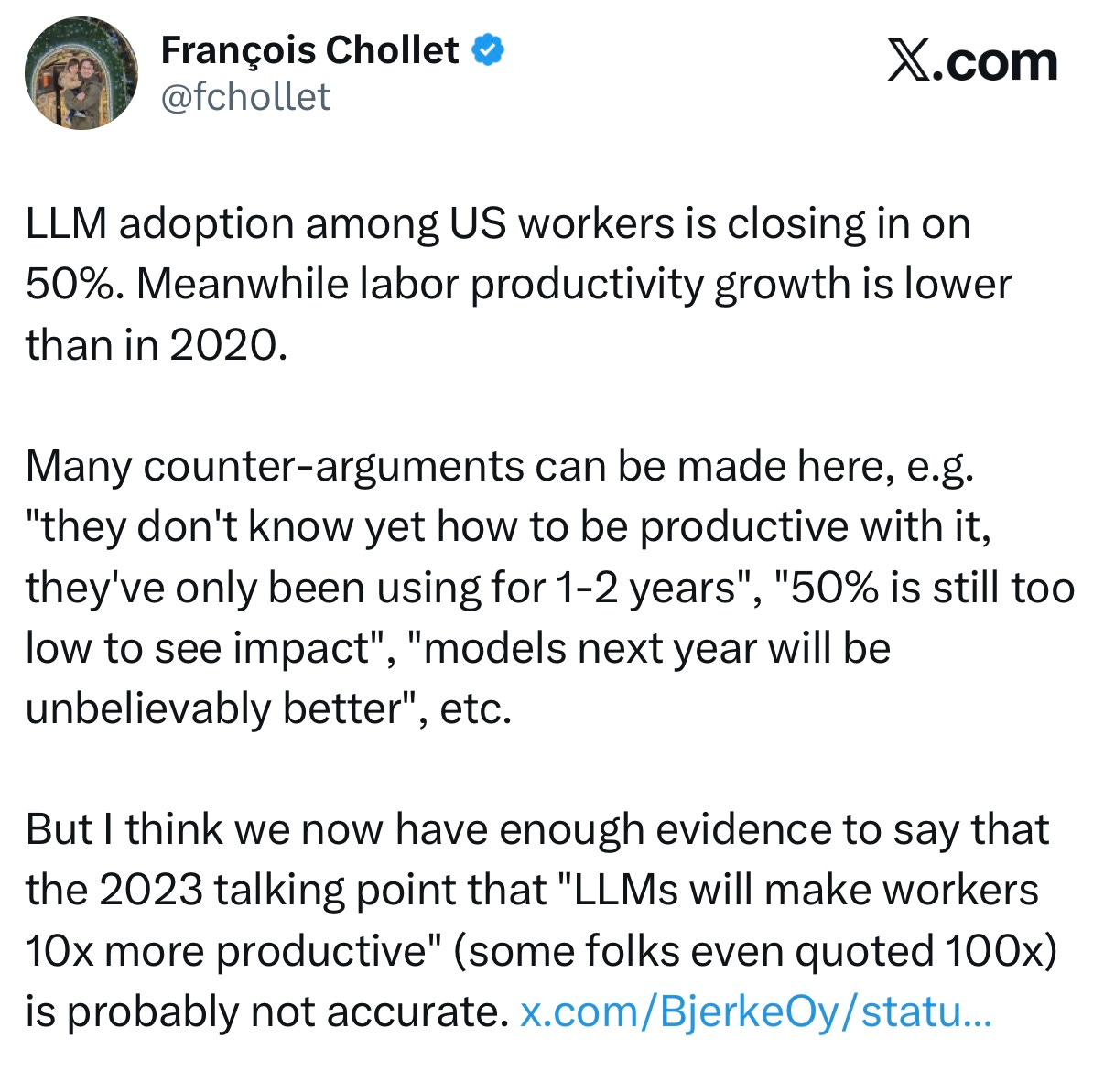
Employers of late are often looking to cut employees. They often use vague talk of AI to license their layoffs, and they often don’t know what the hell they are talking about, at least when it comes to AI.
Klarna, in particular, was way ahead of the curve on this one, bragging about AI layoffs long before it was trendy. They were among the first to announce major AI layoffs, hyping them proudly for quite some time, and among the first to realize they had screwed up.
Here they are, crowing about supposed AI efficiencies, thought by some to preening before the market before a possible IPO, in 2024:
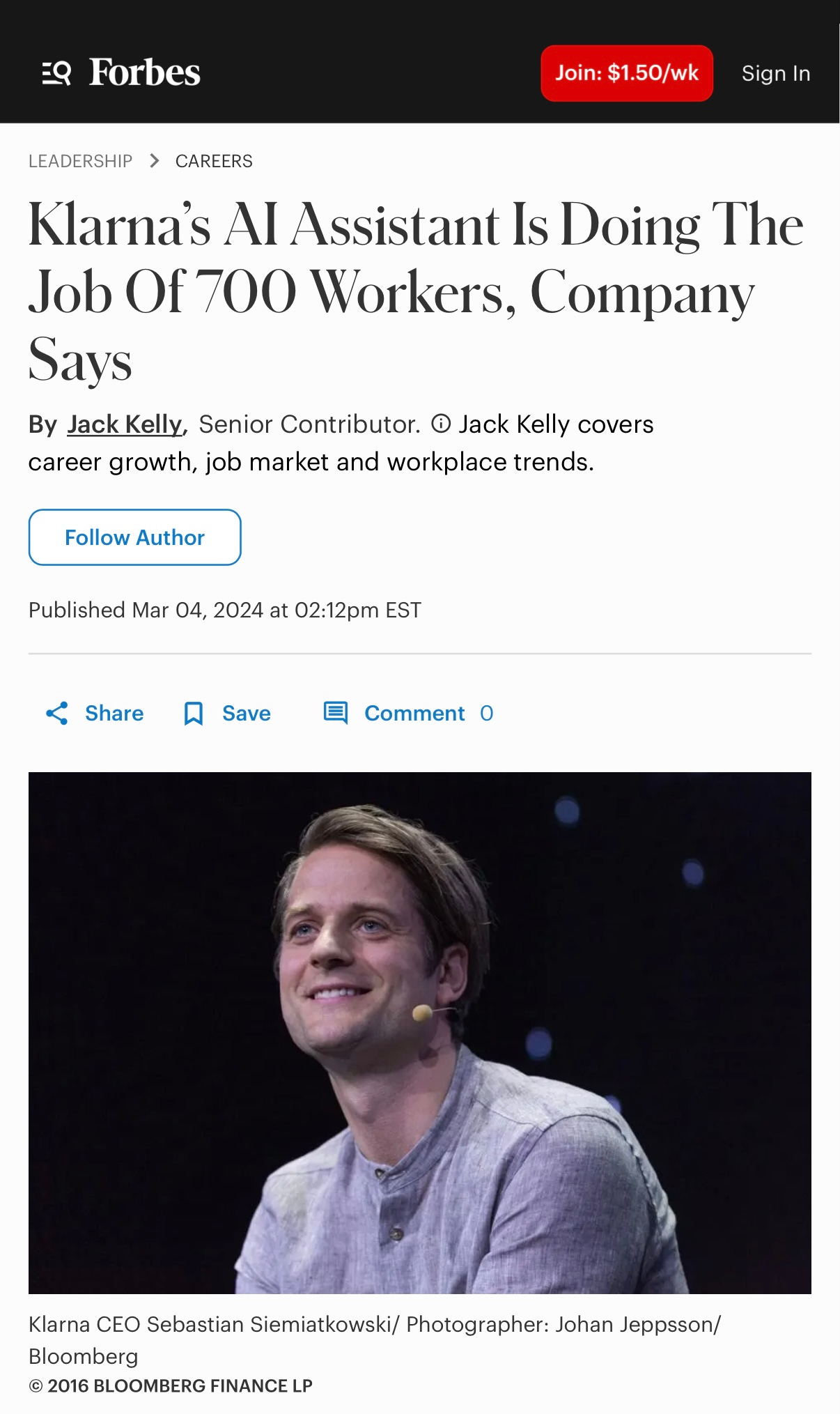
And here they are again, walking it all back in February 2025.
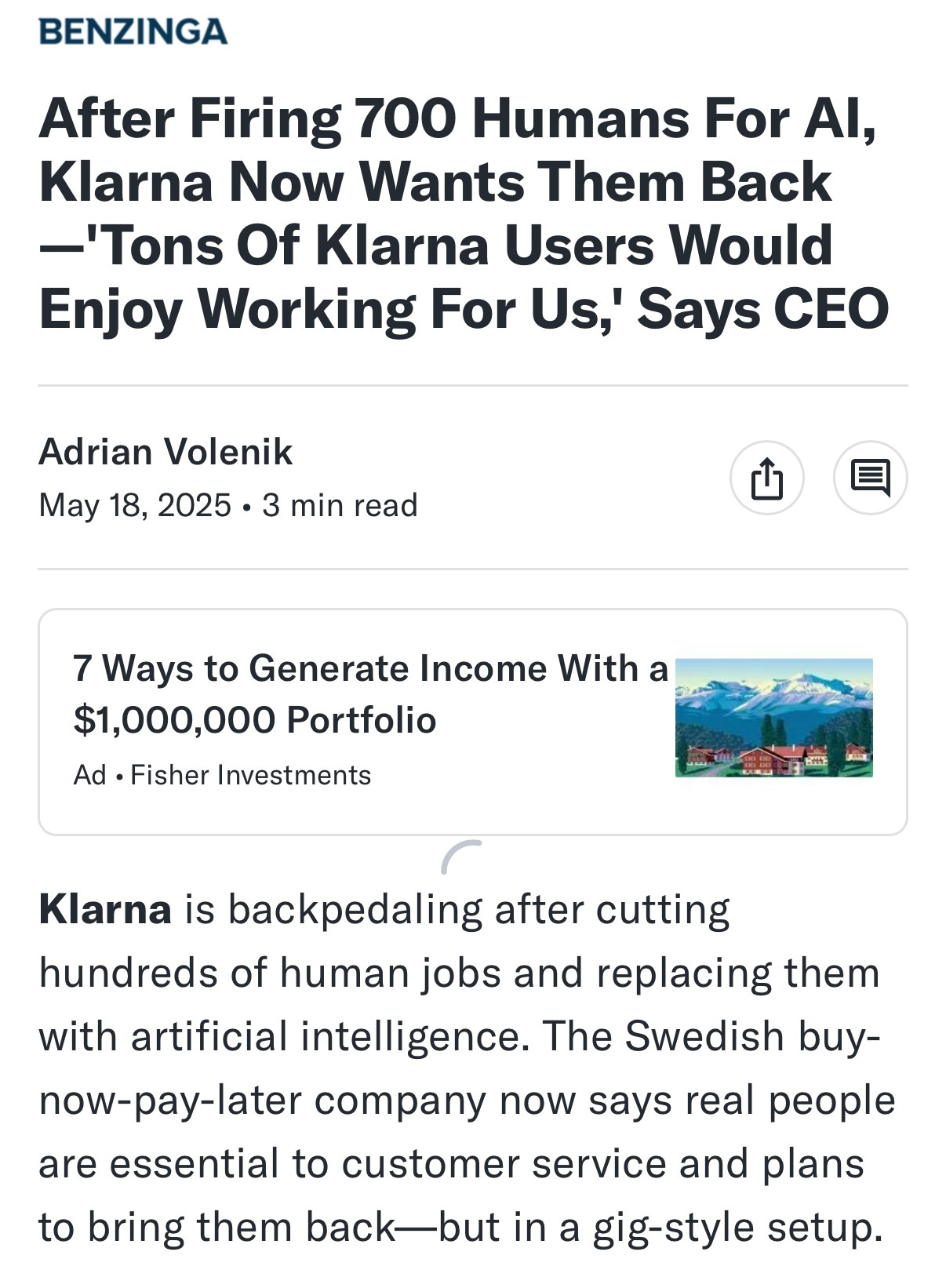
They are hardly alone; a person on X for example once told me similar things are happening in China:

I was so amused by Klarna’s turnabout that I decided to dub the whole arc—from premature declaration of AI’s ubiquitous power to the 180 proudly announcing human rehirings—The Klarna Effect.
§
This morning, in what prompted today’s essay, I received a fresh Klarna Effect sighting via a neuroscientist friend, this time from an Australian bank.
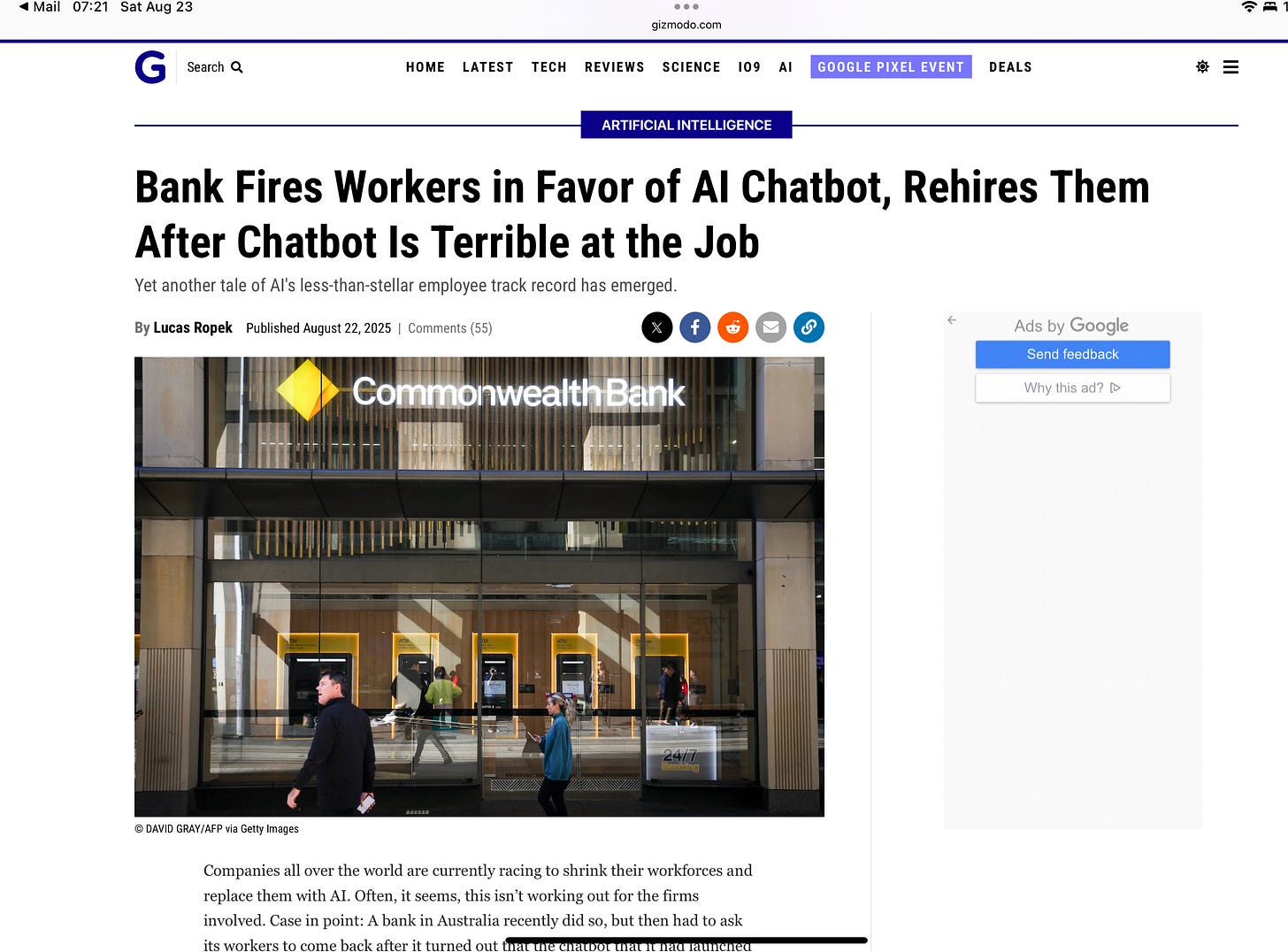
§
Also in my mailbox this morning was a pointer to a story by in the Register, by Amazon AWS CEO Matt Garman that I thought was interesting, from an employer wise enough to resist the trap:
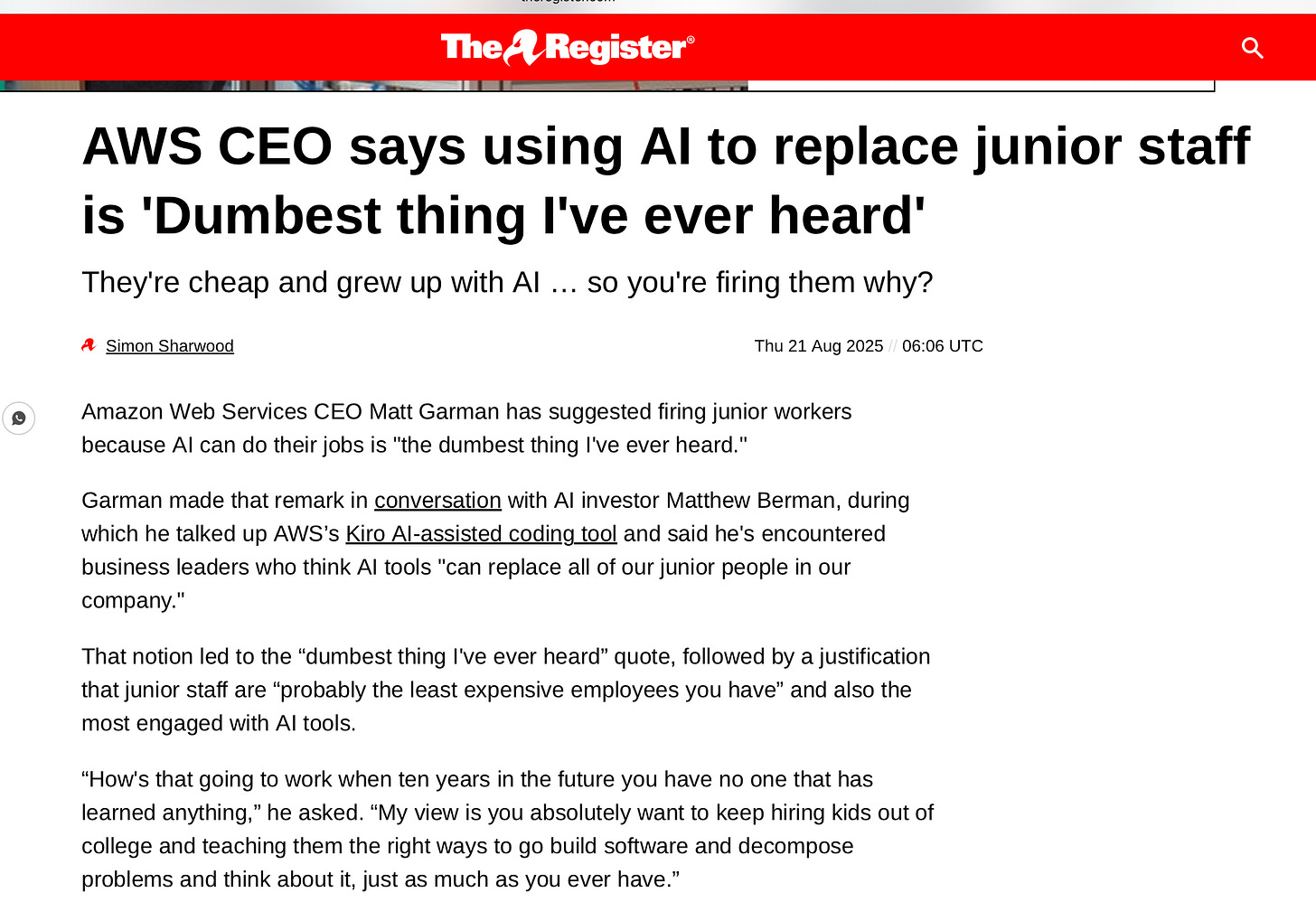
I am with AWS CEO Garman: gutting junior employees, especially in fields such as software development, in favor of AI is (at least for now, until the tech is vastly more mature and reliable) a short-term play that could easily come back to bite employers. AI can do at least some of the work that junior employeess can do, but often not all of it, and AI often lacks the judgement of senior employees. If we stop hiring junior employees, we risk destroying the pipeline to expertis.
In 2016 Geoff Hinton promised that we no longer need to training radiologists. Almost a decade later, not one (to my knowledge) has been replaced.
Nowadays, of course, some employers are actually experimenting with replacing employees with AI. But all too often I believe that they are underestimating what humans can do and overestimating the technological readiness of current AI, which can often do large portions of a job but not the whole thing. The Klarna Effect may come back to haunt them.

